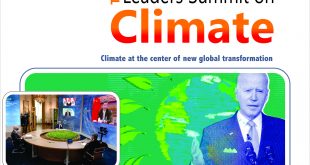After a difficult campaign, President Hassan Rouhani won a crucial second term in Iran’s presidential elections held on May 19. A high turnout of 73% helped him score a convincing victory over his principal challenger Ebrahim Raisi, a conservative cleric, in the first round itself, winning 57% of the votes compared to Raisi’s 38.5%.
In resounding victory of the moderate Hassan Rouhani for another term as the President of the Islamic Republic of Iran, the electorate’s message could not have been more emphatic: The Iranians want greater integration of their nation with the world, especially the West, which Rouhani has promised on terms fair to Iran; they seek increasingly high levels of internal democracy, which Rouhani has worked to achieve and assured to scale up; and they desire economic reforms which the incumbent President is placed to effect. The last two of these are significantly dependent on the first, and to that extent the victorious President’s remark that “Iran chooses the path of interaction with the world, away from violence …” can be safely interpreted as an expression of his determination to push ahead with his global agenda of enhanced positive involvement.
By re-electing Rouhani for another term, the people of Iran have also given the nod to the civil nuclear programme deal he had crafted with the US-led West, following which the West initiated the lifting of several economic and other sanctions it had imposed on Iran. His win secures the pact against falling apart — as it may have, had a hardliner displaced Rouhani.
But, this is the least of the success; now he must push ahead to ensure that the agreement sustains and is not harmed by the efforts of those from within who will be smarting from the defeat. Here, President Rouhani will need the West’s support too; it must not constantly keep questioning Iran’s commitment and threatening it with punitive action in case it falters in delivering. This is especially true of the Trump Administration, and US President Donald Trump who has all along been sceptical of the deal which was stitched by his predecessor Barack Obama.
Now is the time for the rest of the world to strengthen Rouhani’s hands, also because pushing him to a corner will allow hardline elements within Iran to take the initiative. As it is, he has a difficult task ahead. Despite the win, he faces challenges at home.
The people who voted for Rouhani expect his government to meet their demands. President Rouhani, in his first term, has broken the ground for promoting industrial and economic growth. Now, he needs to ensure investment security in Iran in order to lure overseas investment and boost ties with other countries. Tenacious efforts are also needed to resolve the Islamic Republic’s tensions with the US and certain European countries. Besides, the Rouhani government should also increase its efforts to promote ties with other countries, including the regional ones.
 Jahangir's World Times First Comprehensive Magazine for students/teachers of competitive exams and general readers as well.
Jahangir's World Times First Comprehensive Magazine for students/teachers of competitive exams and general readers as well.



